On August 24, 1820, a military pronouncement took place in Porto that initiated the end of absolutism and the construction of liberalism in Portugal. With it, the country entered contemporaneity, whether or not liberal regimes marked the last of the divisions that traditionally periodizes history.
The bourgeoisie penetrated the circles of power, putting an end to the ostracism to which it was committed, in active participation in the political life of the nation. Much later, the people remained, who would have to wait for the Republic or even for the 25th of April 1974.
The international and national situation
In absolute monarchy there was a concentration of state power. The king was simultaneously the one who made the laws, the supreme judge in their application and the one who ordered the public administration, with no rights in relation to the monarch. Public offices were occupied by a restricted nucleus of people from noble families.
But times were now different, and progress, based on new ideas about society and its political organization, asserted itself around the world. The new order came from the so-called Atlantic revolutions: the American Revolution and the French Revolution.
The first culminated in US independence in 1776, which created an unprecedented Federal Republic. With a growing desire to depose the Absolutist and oppressive Old Regime, the French revolted in 1789, demanding "freedom, equality and fraternity".
As early as the 1810th century, in XNUMX, Spain saw some of its American colonies proclaim independence. People demanded new times in line with the so-called philosophy of lights. It was now understood that power did not belong to the monarch, but to the nation that delegated it to the king, citizens had their own rights and individual guarantees and the powers were separate, the legislative, exercised by the Cortes (elected and representative assembly of the nation), the judicial, by the courts and the executive, by the monarch. Rules gathered in a constitution, in a written rule.
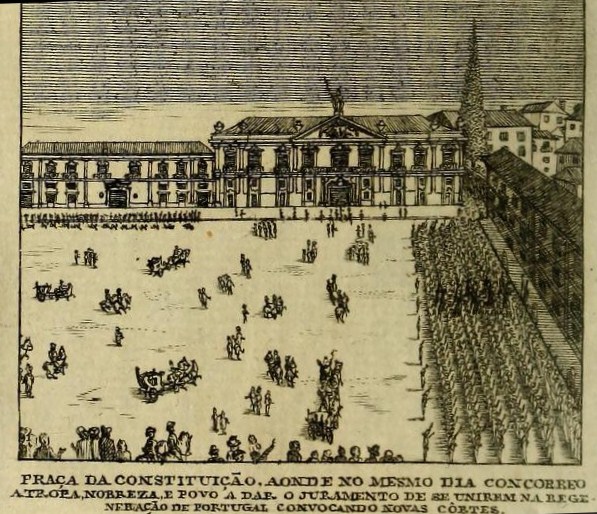
Portugal after the French Invasions (1807-1812) became, in the words of the historian Isabel Vargues, a «politically demoralized and economically and socially fragile country». The royal family delayed his return from Brazil (where he had settled in 1807), with D. João VI having promoted in Rio de Janeiro the ceremony of his acclamation, in 1818.
In Lisbon, the Regency revealed an immobility and an inability to implement urgent reforms that would alleviate the poverty, agricultural, commercial and industrial ruin into which the country had plunged.
On the other hand, opposition to the increase of English influence in Portuguese internal affairs grew, which had, since the French Invasions, effective control over the country, both administratively and militarily.
For many Portugal had become a protectorate of England, in other words, a metropolis the country had become a colony. The international situation in that year of 1820 encouraged the Portuguese conspirators. In Spain the Constitution of Cadiz (1812) was reinstated in March, while in Sicily and Naples there were revolts of a liberal nature.
This is how, on the morning of August 24, in Porto, a merchant city, a military pronouncement takes place. At dawn a concentration of troops took place in Campo de Santo Ovídio, where a parade was formed, two proclamations were read, a mass celebrated and an artillery salvo made.
At 8 o'clock in the morning the revolutionaries met in the Chamber, having previously summoned the senate and authorities for this purpose. The session resulted in the formation of a Provisional Board of the Supreme Government of the Kingdom (of which the Farense colonel Sebastião Drago Valente de Brito Cabreira was vice-president, who also played a leading role that morning), which imposed the summoning of Cortes, for the drafting of a constitution and the king's return to Portugal.
The movement, considered on 29 August by the Regency government in Lisbon as a horrendous crime of rebellion against true power and authority, was supported by many municipalities in the north and center of the country and enshrined, with popular legitimacy, in the capital of the kingdom, on the 15th of September. Time when the Regency is removed, with the formation of another interim. Twelve days later the two governments, Porto and Lisbon, were unified in Alcobaça. The liberal revolution was beginning its path.
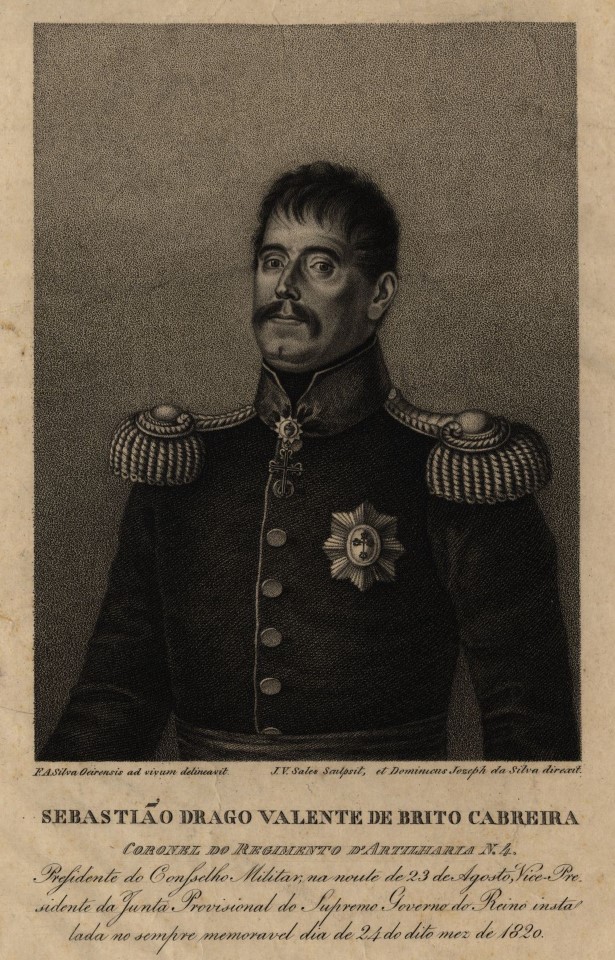
What is the reaction of the Algarvians to the Porto pronouncement?
It is a pertinent question, but difficult to answer. In the region there were no newspapers and many of the books of minutes of the autarchies did not reach our days. The exceptions are Vila do Bispo, Sagres, Lagos, Portimão, Loulé, Faro, Tavira and Castro Marim.
However, not all of them allude to the event, as are the cases of Sagres quality Vila do Bispo, where there is a total omission to it. It is true that on September 6 the news was already known in Loulé, day in which the Chamber met with all the illustrious of the village.
In a session presided over by the judge from outside, who inherently headed the county's destinies, councilors, attorneys, justice officials, military authorities, ecclesiastical, secular and regular dignities, clergy, nobility and people, in which the city of Porto, which was "uprised by punishment from Heaven", as was considered illegitimate the "government established in that disgraceful city", even suggesting a "severe punishment" for its authors.
The meeting ended with pledges of loyalty to the Regency: «Long live Mr. Dom João Sexto, King of the United Kingdom of Portugal, Brazil and the Algarve, defending himself with the blood of our families, without violating the rights of his family, Your Excellencies governors of the Kingdom, legitimate representatives of our most faithful monarch. Long live El Rei our lord, long live his royal family, long live the august Casa de Bragança”, the minutes were signed by more than 115 individuals. The Louléans thus took sides with the government of the Lisbon Regency.
Em Faro the city council met extraordinarily on September 19, with councilors, prosecutor, officers and soldiers, to "raise the Cry of National Freedom, following the Glorious example of the Immortal City of Porto".
The initiative came from the Commander of the Artillery Regiment No. 2, and in the session it was decided to summon the other civil, ecclesiastical, military, nobility and people entities, so that at 17:00 that afternoon, in the public square, they proclaimed themselves in front of the regiment to the Sound of Artillery, with all the Pomp due to El Rey Nosso Sr. the Queen Nossa Sr.ª the Royal House of Bragança with Cortes, and Constitution», as well as three nights of illumination in the city.
Eleven days after Loulé, the council of Faro he pored over events, with a distinct demeanor. However, if the pronouncement was already known to the Loulés at 6, the news hardly ever reached Faro on the same days. It is true that the foreign judge was sick and absent in Olhão and that the session was scheduled at the request of the regimental commander to a councilor, but there is another relevant variable: Lisbon had supported the rebels on the 15th and they had been aware of this the Farenses that same day 19.
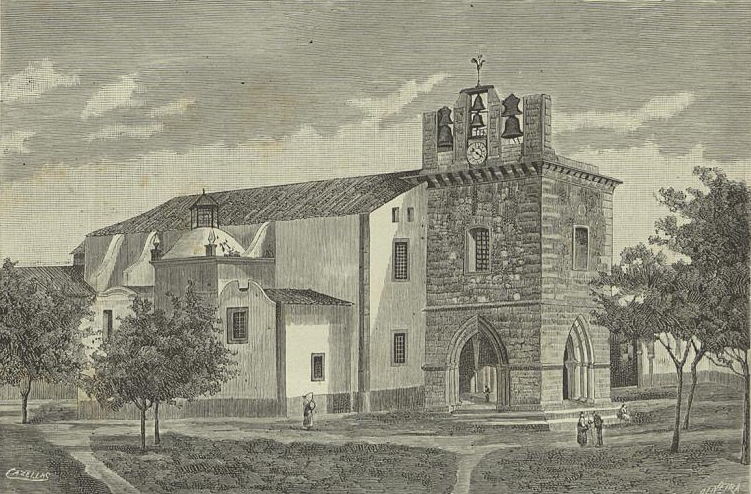
On the other hand Faro it was, unlike Loulé, a port city, where commerce was developed, and with it the diffusion of new ideas through exchange and above all the development of the bourgeoisie.
At the appointed hour, the royal standard was raised, the senate, accompanied by all the city's nobility, other authorities and people went to the square, under peals of bells, where they were awaited by the regiment. After saluting, the commander read a proclamation to the troops and to all those present, who exclaimed "joyful cheers to El Rey Nosso Senhor, to R. Casa de Bragança, to the Cortes to the Constitution". To culminate the initiative there was an artillery salvo by the regiment and another by the squadron of war, an attack in the port.
They returned to the Chamber, with great competition from people of all classes, and their representatives signed the report. However, it was after a “unanimous vote and general wish” that all those present signed it, with a total of 80 signatories. A privilege coming from the new times. Due to the small size of the room and high competition, the senate and other participants withdrew, at the suggestion of the Chapter, to the chapter room, where the session continued “with greater pomp and decency”.
Among other aspects (creation of an urban police guard, dismissal of the military commands), it was proposed that «Vote for a Board that Provisionally Governs this Reyno do Algarve», which would be based in Faro, «the first city in the Algarve».
The objective of the regional government was to avoid the «state of Anarchico» in the region, which should remain in office until the establishment of a single government in the country. Proposal approved the following day, in an extraordinary session. It was jointly decided to send emissaries bearing an official letter to all the councils of the Algarve, accompanied by the decisions taken.
The missive required that they be sent to Faro two prosecutors for each municipality, for the election of the said provisional government, on 30 September. A suggestion that was ignored or even condemned by the Algarve authorities, as we shall see.
Also in Lagos it was the militia colonel and interim governor of the square who invited the president of the local authority, senate, nobility, people and military garrison to appear on September 21, at the parish church, and there, together with the clergy, «give everyone thanks to the Almighty” for the establishment of an interim government in Lisbon and “for the happy Regeneration”.
Amid «downloads of Joy and Real Salvation», for such ostentatious reasons, «all with unanimous and repeated cheers were acclaimed: Our Augusto Monarch, the Lord King João Sexto, the Royal House of Bragança, Our Holy Catholic Religion and the Constitution to make the Cortes». Lagos, an important military square and where the first Masonic Workshop in the Algarve was founded in 1816, thus solemnized the event.
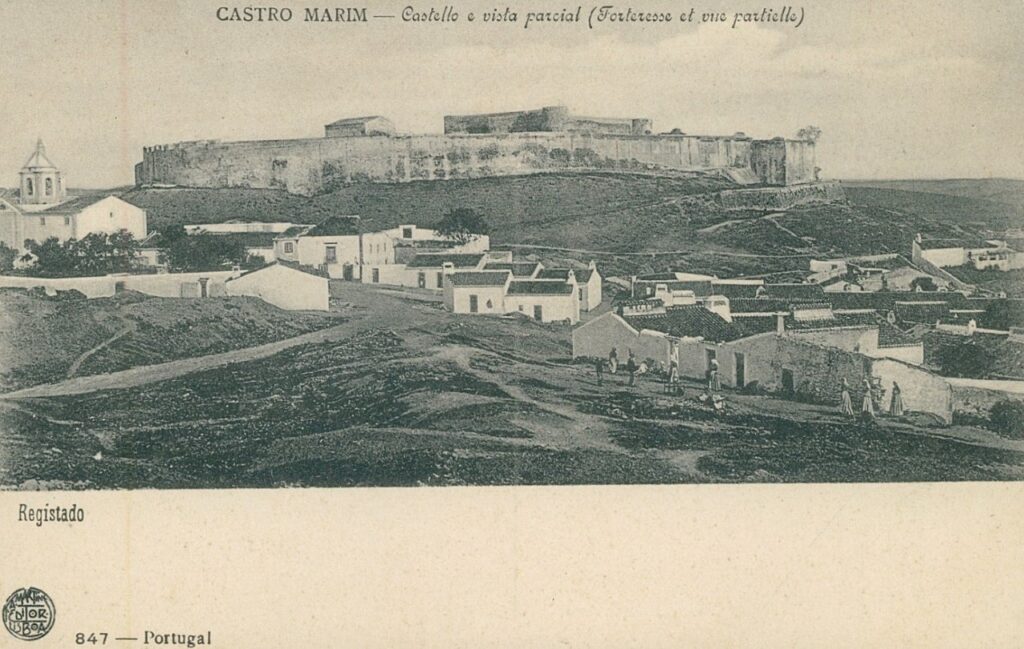
to leeward, Castro Marim dedicated the September 22 session to the new direction of the nation. It should be noted that the book of minutes, published a few years ago, contains some disorder in its content. There are two different minutes drawn up on the 22nd of September, on different pages, and among them the session of the 25th of September, a tenth of the Registrar's oath of the twenty-first of October, followed by the minutes of the meeting of the 31th of September .
Dissalities aside, it was on the 22nd of September that the external judge and councilors determined «to give all evidence of Jubilo for the installation of the new Government of Lisbon (…) which, joining the provincial board of the Supreme Government of the City of Porto, of A common hand will seek the happiness of the nation and the salvation of the homeland, which has so much to hope for, and of the gathering of such illustrious nobles who make up both so-called Juntas».
Three nights of illuminations were also deliberated, and that same afternoon, in the town square, the Town Hall and the nobility of the land joined to give «cheers to El Rey Nosso Senhor, the Dynasty of Caza de Bragançia and the Interim Government of Lisbon, Cortes and Constitution» , being seconded by the Batalhão de Caçadores 4, which gave «the salutes of joy of the style, matching the castle and the fort with salvos of artillery».
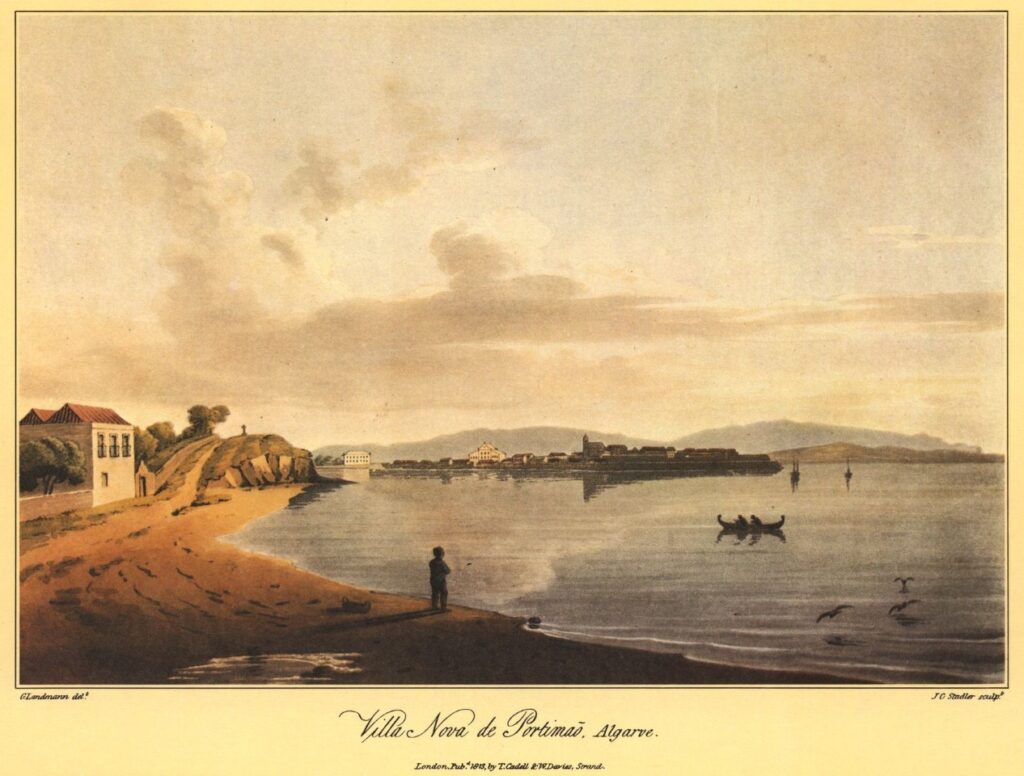
In turn, in the prosperous and commercial Vila Nova de Portimao the senate met on the 25th of September, following the reception, among others, of the proclamation of the provisional government, on the 17th of the same month, deliberating a new session for the following morning.
Thus, the minutes of September 26 refer that the news of the installation of an interim government in Lisbon had been received by all with satisfaction and excitement, for which they manifested there «ardent desires for Union and the adhesion of their seos vottos to those of the capital».
The Senate, in the presence of civil and military authorities, nobility, clergy and people, rendered, with "the greatest enthusiasm, the most lively recognition, obedience, homage and wishes of fedelity" to the new government. Moments later, the president, from the Chamber windows, repeated to the soldiers and the people, who were in the square, the same cheers, which were matched with "greater joy, giving the troops three salutes." Ceremony that took place with the greatest order, tranquility and general contentment.
It was also agreed to place luminaires for three nights, accompanied by artillery salvos, as well as a sung mass and a Te Deum in the matrix, in thanksgiving to the «Highest for such great benefits». The minutes were signed by about 60 people.
Already in Tavira only on October 3rd did we find a small indirect reference to the revolution. It is the reception of an official letter from the interim government of Lisbon in response to the letter that the Senate of Tavira had sent, «on the events of the commissioner who came to this city sent by the Junta that wanted to be formed in Faro». According to Luís Vidigal, the Câmara de Tavira received the letter from Faro on the 22nd of September, and the following day, zealously, informed the position that the S. Majesty had taken. After all, the Tavirenses, "firm in our duties", had not only rejected the nomination of deputies to the Board but also "the reception of the same Letters", simultaneously rebuking the attitude of the authorities of Faro to the monarch.
In an official letter sent to Castro Marim, the provider of the district of Tavira, he reported the contempt that the proposal had deserved in the Algarve's Venice, noting that it had been despised by the peoples and misunderstood by the civil and military authorities, «we should expect the public recognition that they had done, and obedience that they had already rendered to the government once again installed in Lisbon».
The ombudsman also reminded that the Chamber of Castro Marim should avoid any hasty deliberation, although he trusted that “the arbitrations of hallucination and error will be firmly sustained”. Office similarly sent to other municipalities in the region.
In Portimão, on the matter, the Senate decided to respond, on September 25, that the establishment of the Board was unnecessary. The Lacobrigense autarchy had a more impetuous position, the following day, despite not having received the Farense emissaries, their purpose was already known there, so they were willing to «with a similar firmness a Proposal as extemporaneous, and subversive of the good Order, which fortunately he reigns among us”, to which they added “with a view to the regeneration and prosperity of the Nation”, they only recognized and would receive orders from the new government of Lisbon, aligned with that of Porto.
In light of the above, the Algarve's reaction to the liberal pronouncement, with the exception of Loulé, was conspicuous. It was only after the movement's triumph in Lisbon, on 15 September, that local authorities addressed the issue. If prudence had prevailed until then, if the capital of the kingdom agreed, the Algarve consented…
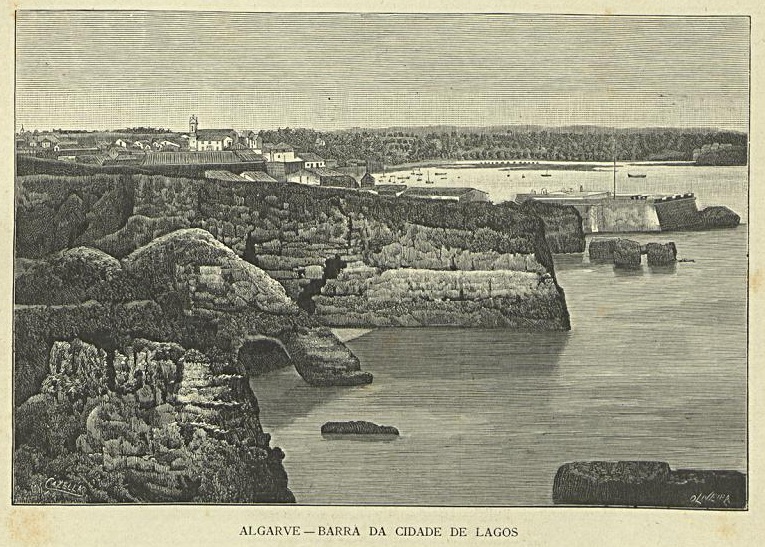
Faro and Lagos met on 19 and 21 September respectively, at the request of the military leaders, who in this way supported their counterparts from Porto. In Castro Marim and Portimão, the initiative came from outside judges. Places where the events of Porto were reproduced, repeating salvos, masses, lamps, and cheers for freedom, the monarch, the Courts and the constitution, all in the greatest tranquility and security.
Despite the changing times, immediately noted in Faro with all those present able to initial the report, in Castro Marim the people were not summoned to join the festive moment. Loulé, after condemning the statement, on 6 September, whose minutes were the most ratified in the region, fell silent, while Tavira practically ignored him in his sessions, constituting the two cases of greatest conservatism in the region. The geographic location of Loulé (inland) and the predominance of the nobility and influence of the clergy in Tavira (more than 30 churches) are not unrelated to this reality.
But note also the indifference of the senates of Sagres and Vila do Bispo. While most authorities in the Algarve welcomed the new period that was beginning, they were unanimous in accepting the orders of the old institutions, such as the district ombudsman, in opposition to the election of a regional government, as suggested by the progressive Farense senate, and it had happened at the time of the expulsion of the French, in 1808. The following months were intense, Lagos, for example, pompously solemnized, on 15 October, the merger of the government of Porto with Lisbon, also in Faro the event did not go unnoticed.
In December, the Algarvians elected, for the first time, three deputies, one for Tavira, the other for Faro and another by Lagos, who in Lisbon would participate in the drafting of the first Constitution of Portugal.
The Liberal Revolution was beginning, but the path to follow was going to be arduous and complex. On the one hand, the difficult acceptance of the loss/sharing of power by some, on the other hand, the incomprehension of change, which is often played out by the rude people. In 1823, the counter-revolution restored absolutism, only defeated in 1834, after a violent civil war, which in the Algarve lasted until 1844.
But for now, August 1820, "Long live Liberty", "Long live the Constitution", "Long live the regeneration of the nation".
Author Aurélio Nuno Cabrita is an environmental engineer and researcher of local and regional history, as well as a regular collaborator of the Sul Informação.
Note: In the transcripts, the spelling of the time was maintained.
Help us to do the Sul Informação!
Contribute your donation so that we can continue to make your journal!
Click here to support us (Paypal)
Or use our IBAN PT50 0018 0003 38929600020 44
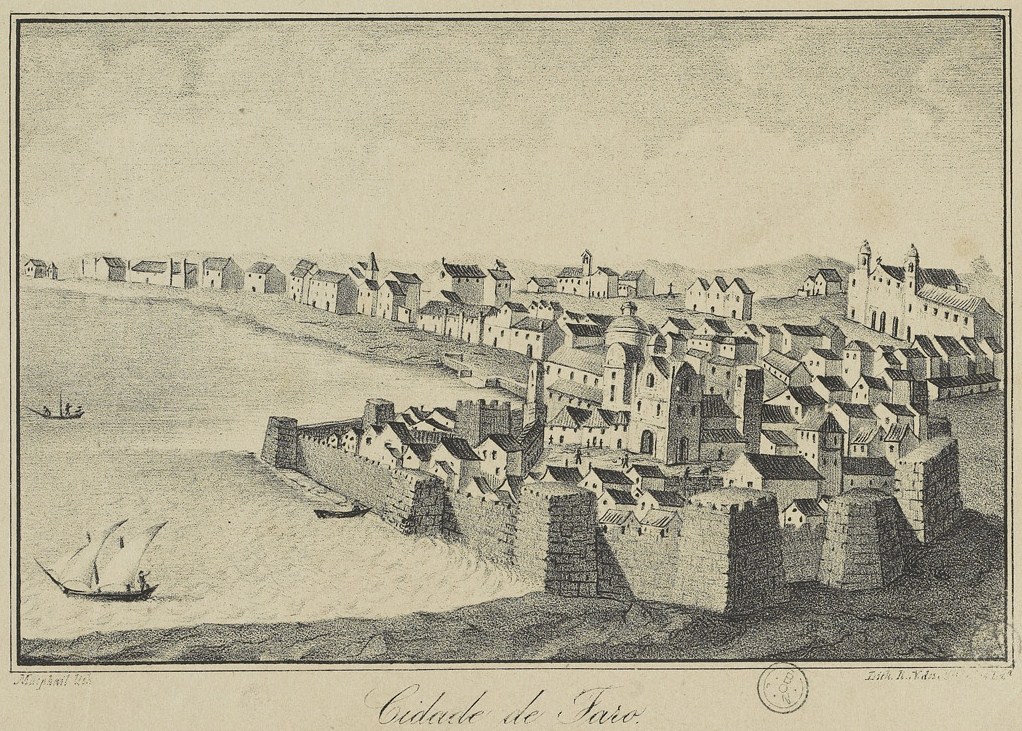
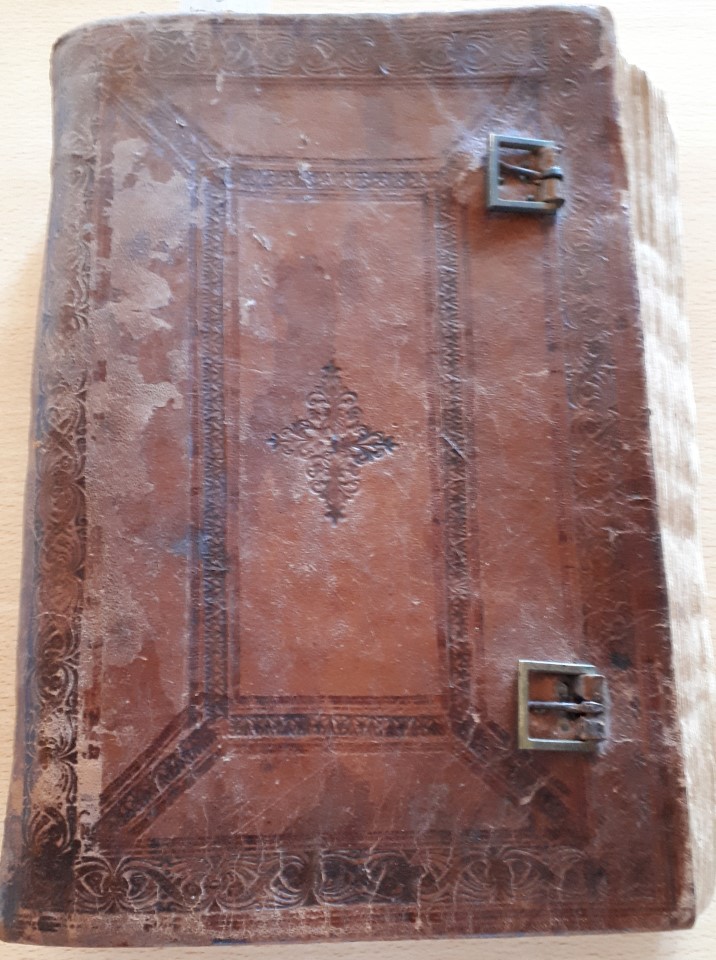
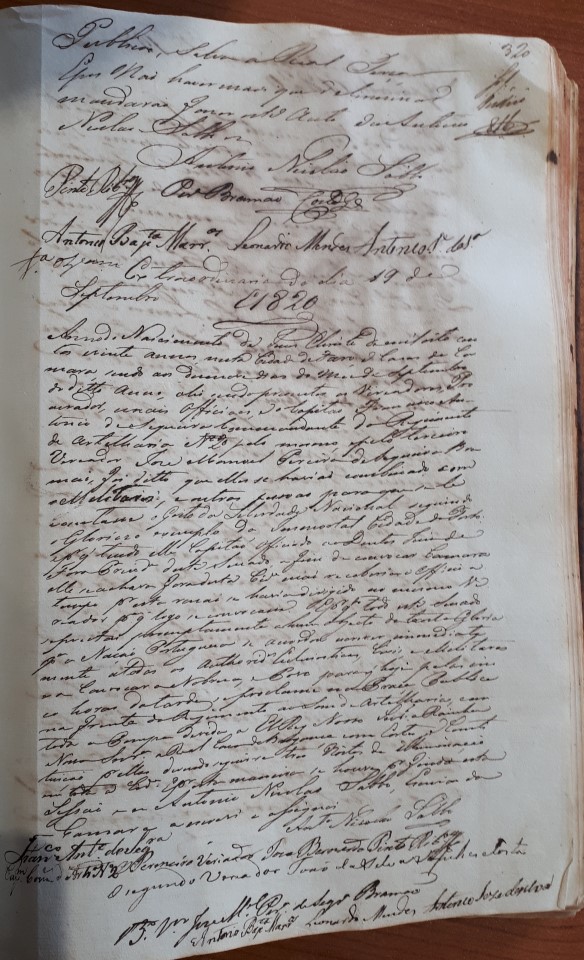
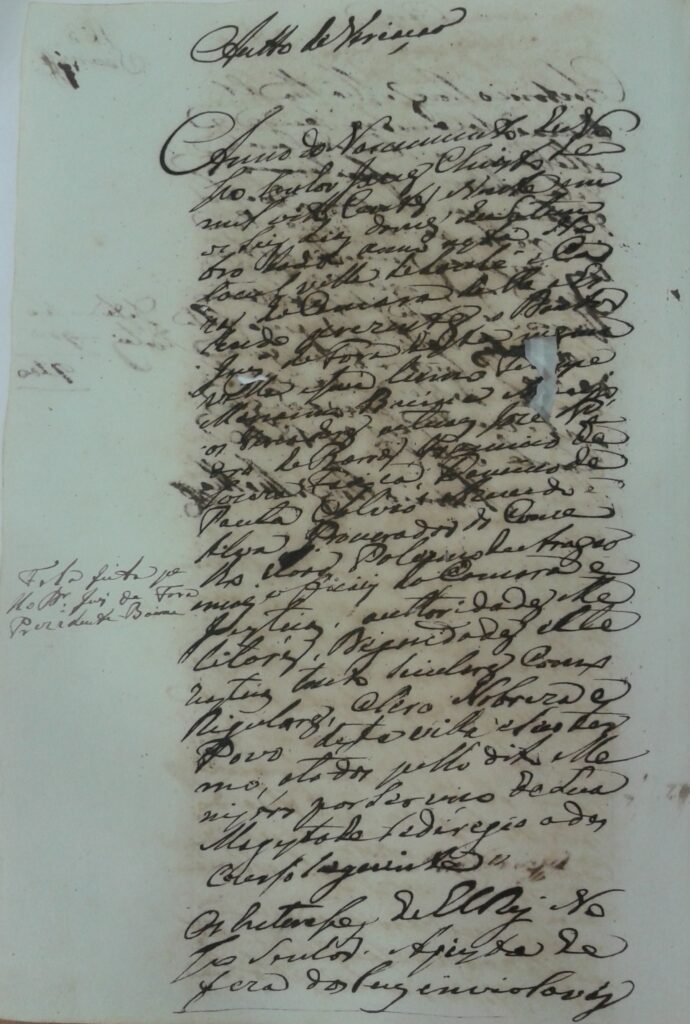
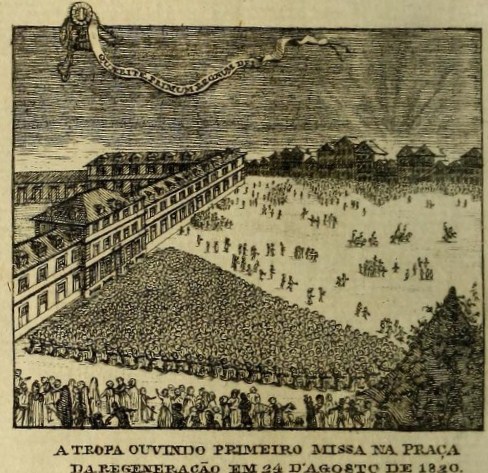


















Comments